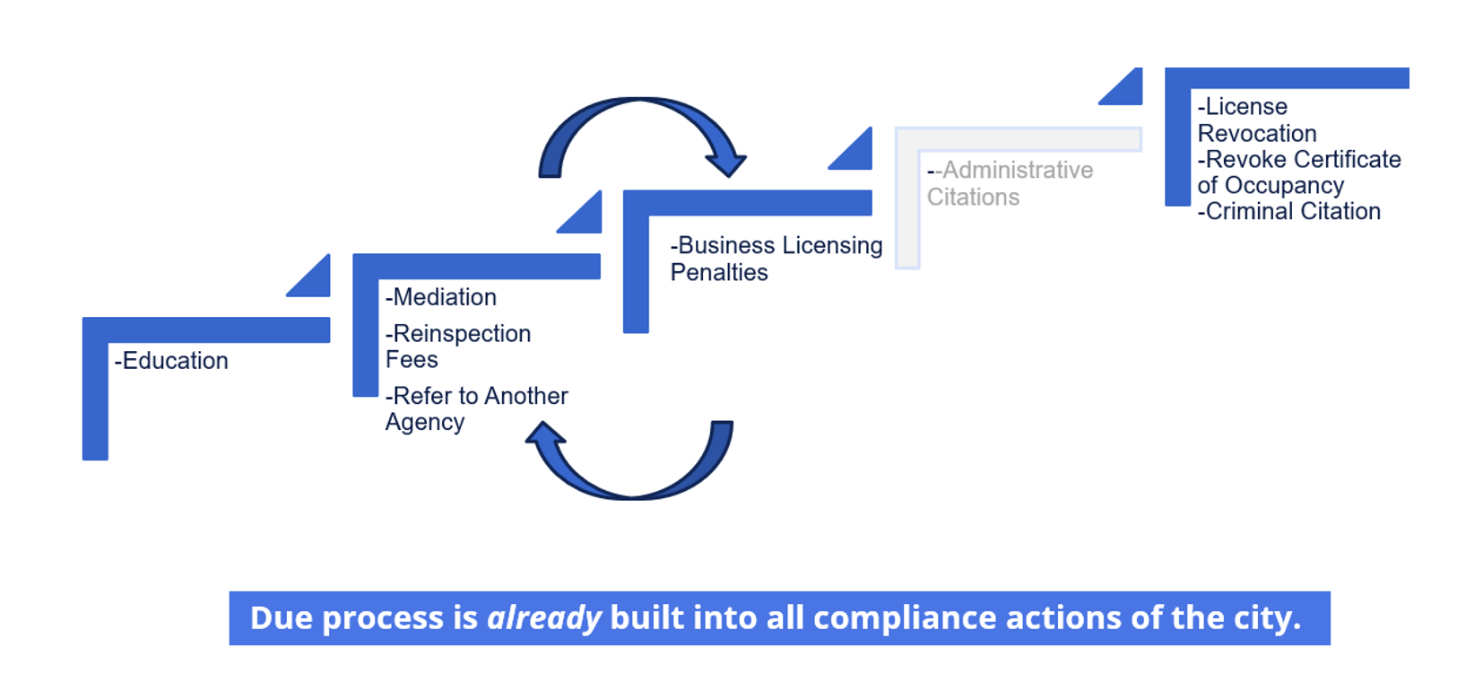City Meetings Discussing Administrative Citations
The proposal to add administrative citations as an enforcement tool has been reviewed and discussed in several public meetings. These meetings provided opportunities for City leaders, staff, and community members to learn more about how the tool would work and to share feedback before adoption.
